Sustainability
We’ve always been big advocates for sustainability efforts in the country and the region. We work hand-in-hand with scientists, researchers, innovators, and entrepreneurs in Qatar and all over the world to make breakthroughs and develop new, sustainable solutions to grand challenges.
From closely following best practices in designing our built environment to launching air quality monitoring stations and creating Qatar’s first urban forest—we’re taking our whole community along on a journey toward a safer future.
Expertise on Display
New regional ground was broken for spoken language technologies in January, as students from around the world participated in the first hackathon in this field to be staged in the Middle East and North Africa – collaborating to devise ways of using technology to increase language understanding.
It formed part of the 2022 IEEE Spoken Language Technology Workshop, held in the region for the first time with HBKU’s Qatar Computing Research Institute as the host, with global experts discussing advances in areas including automated speech recognition, machine learning for languages, and text-to-speech applications.
Meanwhile, QF-generated expertise in solar energy was showcased by HBKU’s Qatar Environment and Energy Research Institute at the 8th World Conference on Photovoltaic Energy Conversion, the world’s biggest platform for photovoltaic research and development.
And Haya Al Ansari, a second-year medical student at QF partner university Weill Cornell Medicine-Qatar, presented research into a rare and incurable blood cancer, which she worked on with doctors from New York, at a leading US health conference focused on hematology.
New regional ground was broken for spoken language technologies in January, as students from around the world participated in the first hackathon in this field to be staged in the Middle East and North Africa – collaborating to devise ways of using technology to increase language understanding.
It formed part of the 2022 IEEE Spoken Language Technology Workshop, held in the region for the first time with HBKU’s Qatar Computing Research Institute as the host, with global experts discussing advances in areas including automated speech recognition, machine learning for languages, and text-to-speech applications.
Meanwhile, QF-generated expertise in solar energy was showcased by HBKU’s Qatar Environment and Energy Research Institute at the 8th World Conference on Photovoltaic Energy Conversion, the world’s biggest platform for photovoltaic research and development.
And Haya Al Ansari, a second-year medical student at QF partner university Weill Cornell Medicine-Qatar, presented research into a rare and incurable blood cancer, which she worked on with doctors from New York, at a leading US health conference focused on hematology.
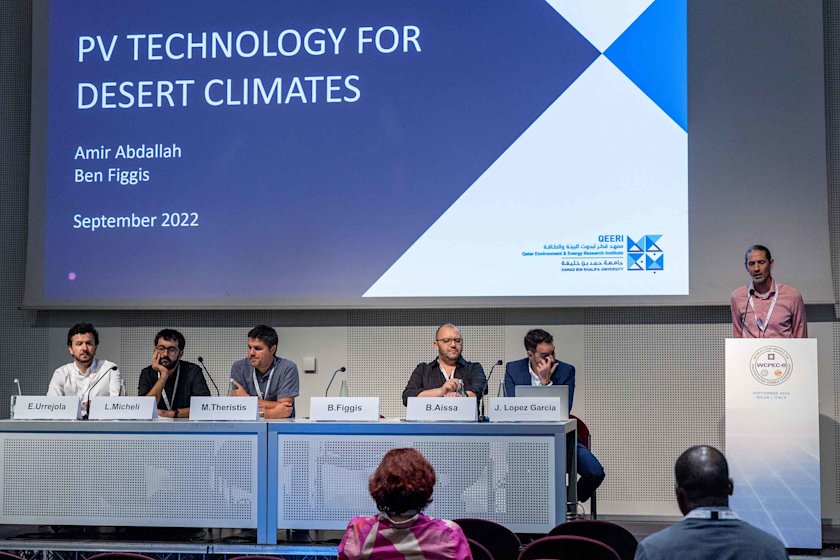
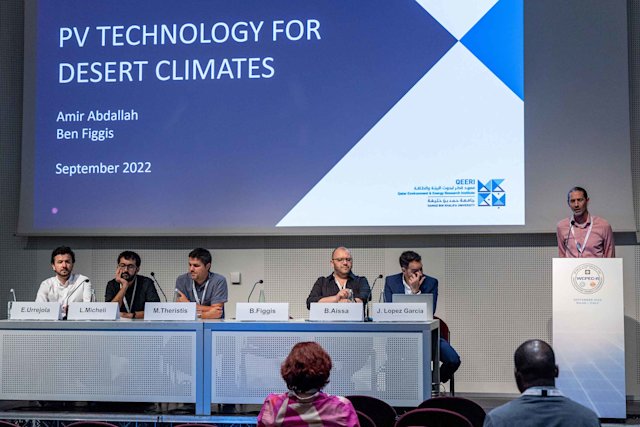
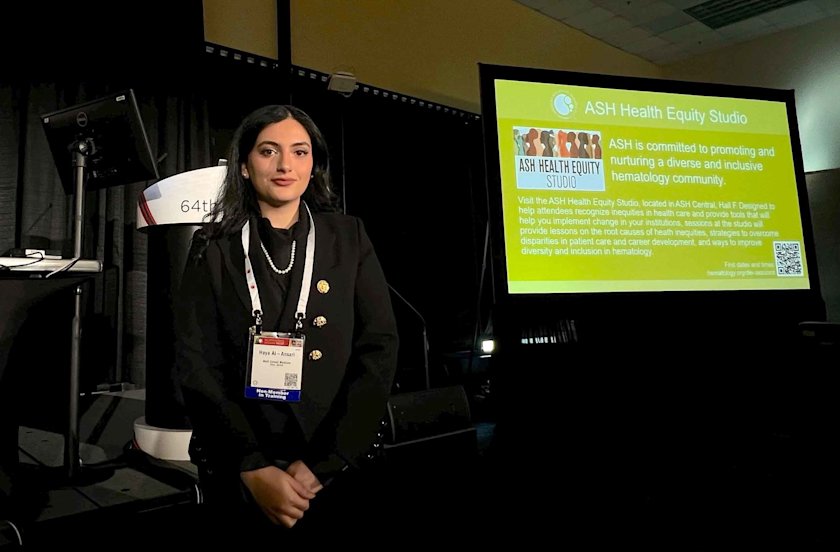
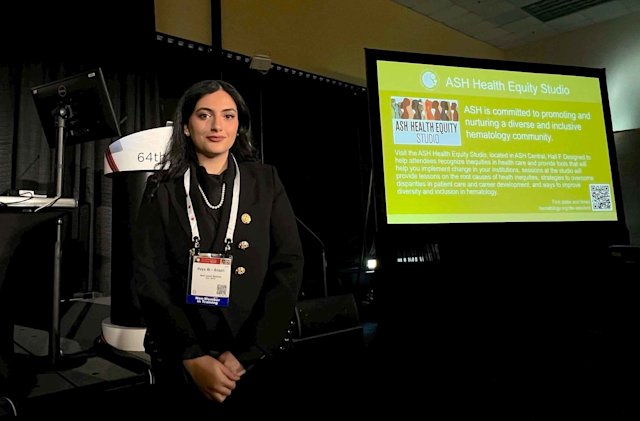
Food for Thought
Supporting Qatar’s focus on strengthening its food security, researchers from a QF partner university embarked on a project connecting academia and industry, with the aim of increasing the nation’s tomato stocks by 25 per cent.
The hydroponic tomato project is a joint effort between Texas A&M University at Qatar (TAMUQ), the university’s parent campus, and Qatari food company Agrico. Its research team are studying tomato genotypes from around the world to assess which can best thrive in Qatar’s desert conditions, as well as the impact of a horticultural technique known as ‘grafting’, pest control, plant density, and pollination.
“As researchers, we strive to provide solutions to real challenges faced by the country,” said Dr. Bing Guo, a mechanical engineering associate professor at TAMUQ.
“In recent years, there has been a pressing need to make farming more efficient in Qatar. Our preliminary experimental results show a significant increase of tomato yield compared to the current practice, and this is a strong indication we will reach our goal.”
Supporting Qatar’s focus on strengthening its food security, researchers from a QF partner university embarked on a project connecting academia and industry, with the aim of increasing the nation’s tomato stocks by 25 per cent.
The hydroponic tomato project is a joint effort between Texas A&M University at Qatar (TAMUQ), the university’s parent campus, and Qatari food company Agrico. Its research team are studying tomato genotypes from around the world to assess which can best thrive in Qatar’s desert conditions, as well as the impact of a horticultural technique known as ‘grafting’, pest control, plant density, and pollination.
“As researchers, we strive to provide solutions to real challenges faced by the country,” said Dr. Bing Guo, a mechanical engineering associate professor at TAMUQ.
“In recent years, there has been a pressing need to make farming more efficient in Qatar. Our preliminary experimental results show a significant increase of tomato yield compared to the current practice, and this is a strong indication we will reach our goal.”
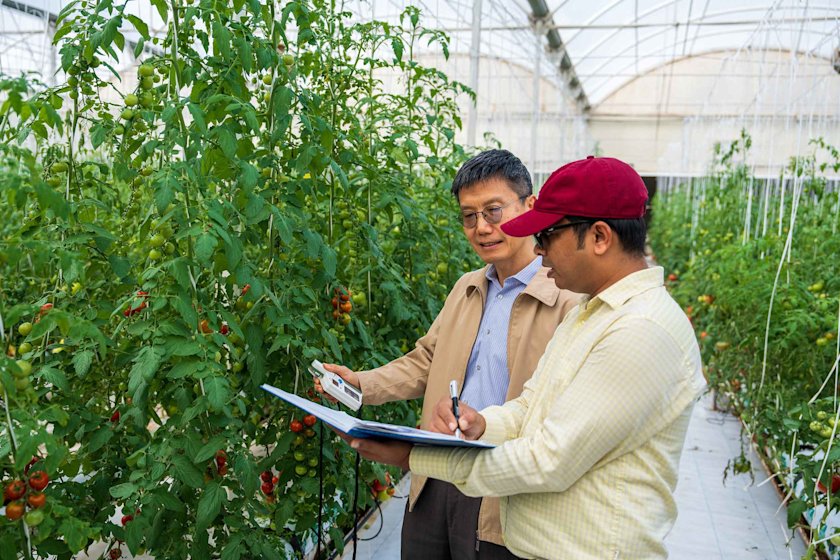
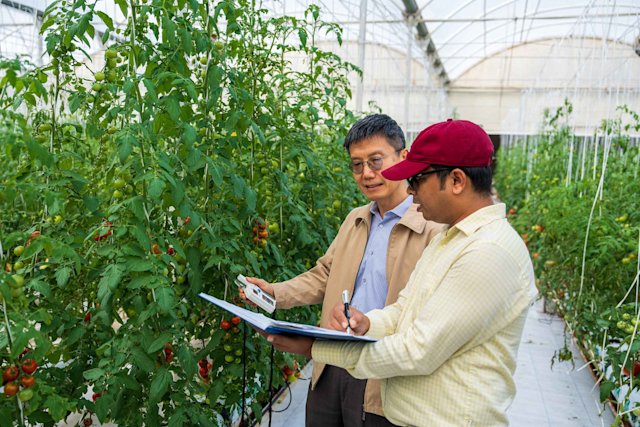
Research and development in agriculture play a key role in enhancing agricultural practices globally, and we look forward to working with Texas A&M researchers to produce the best for our country.
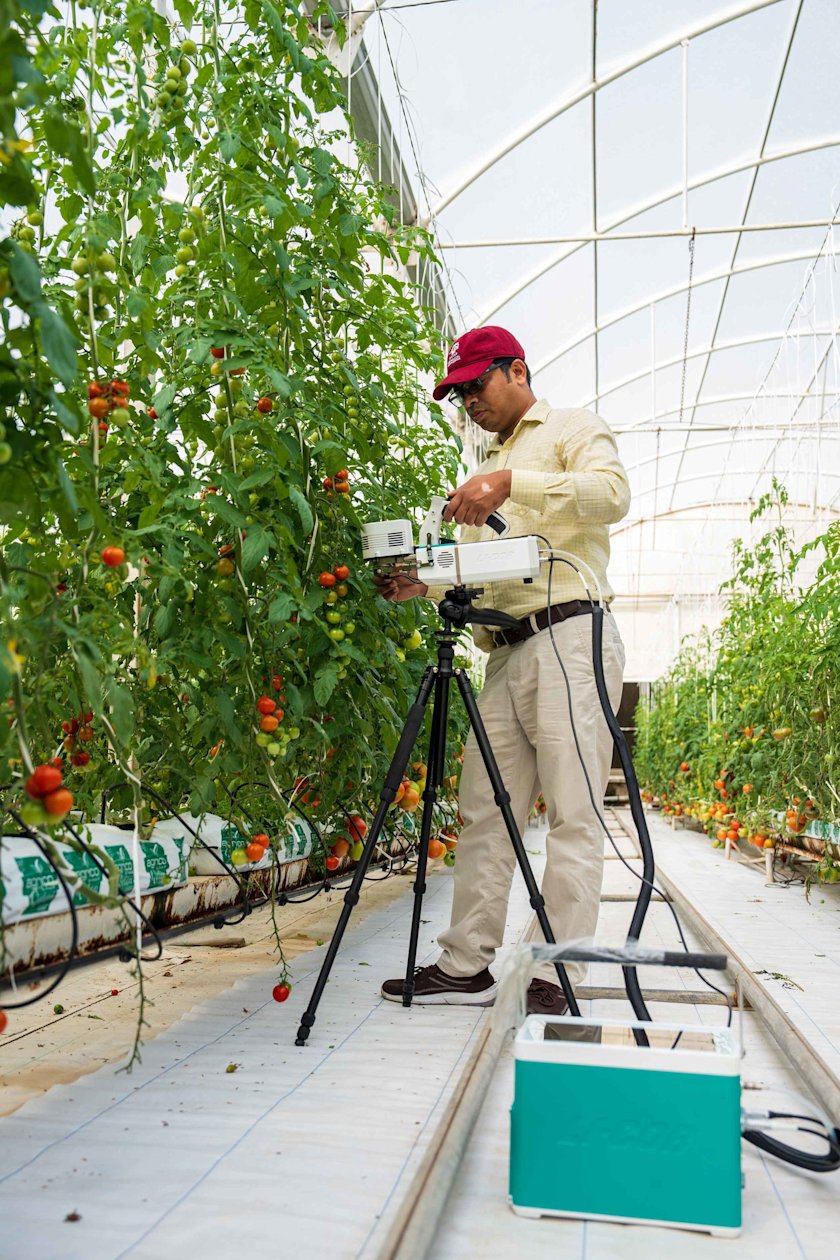
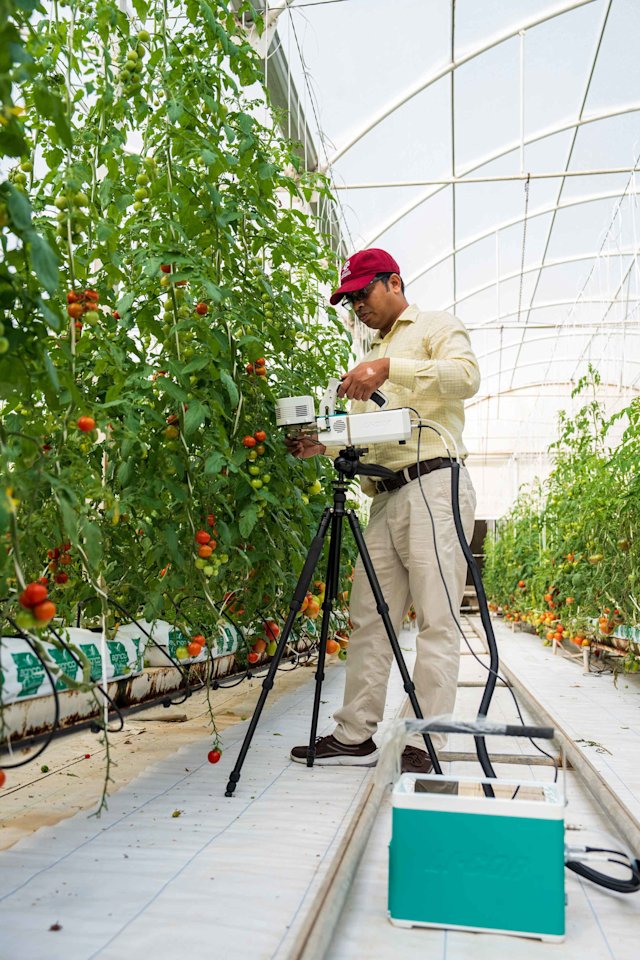
The Past Informing the Future
Aimed at bringing a renewed focus on how ancestral solutions to climate challenges can help shape a more sustainable world, QF’s inaugural Earthna Summit brought together sustainability experts and policymakers – including indigenous peoples – to learn from, and exchange knowledge and ideas with, each other.
With its theme of ‘Building New Sustainability Pathways for Hot and Arid Environments’, the Summit in Msheireb Downtown Doha, hosted by QF’s Earthna Center for a Sustainable Future, reflected the need for such environments – including Qatar’s – to be more prominent in global sustainability conversations, which typically revolve around tropical and temperate climates.
The opening of the Summit – attended by Her Highness Sheikha Moza bint Nasser, Chairperson of Qatar Foundation – saw Her Excellency Sheikha Hind bint Hamad Al Thani, Vice Chairperson and CEO of Qatar Foundation, tell its audience: “The purpose of seeking out indigenous wisdom is for us to discern and choose wisely that which resonates in our local environment, so that we may adopt simple whole solutions instead of complicating things.
“And so that, when we adopt new policies, we can attack the root causes of our modern issues, instead of getting lost in the branches.”
Aimed at bringing a renewed focus on how ancestral solutions to climate challenges can help shape a more sustainable world, QF’s inaugural Earthna Summit brought together sustainability experts and policymakers – including indigenous peoples – to learn from, and exchange knowledge and ideas with, each other.
With its theme of ‘Building New Sustainability Pathways for Hot and Arid Environments’, the Summit in Msheireb Downtown Doha, hosted by QF’s Earthna Center for a Sustainable Future, reflected the need for such environments – including Qatar’s – to be more prominent in global sustainability conversations, which typically revolve around tropical and temperate climates.
The opening of the Summit – attended by Her Highness Sheikha Moza bint Nasser, Chairperson of Qatar Foundation – saw Her Excellency Sheikha Hind bint Hamad Al Thani, Vice Chairperson and CEO of Qatar Foundation, tell its audience: “The purpose of seeking out indigenous wisdom is for us to discern and choose wisely that which resonates in our local environment, so that we may adopt simple whole solutions instead of complicating things.
“And so that, when we adopt new policies, we can attack the root causes of our modern issues, instead of getting lost in the branches.”
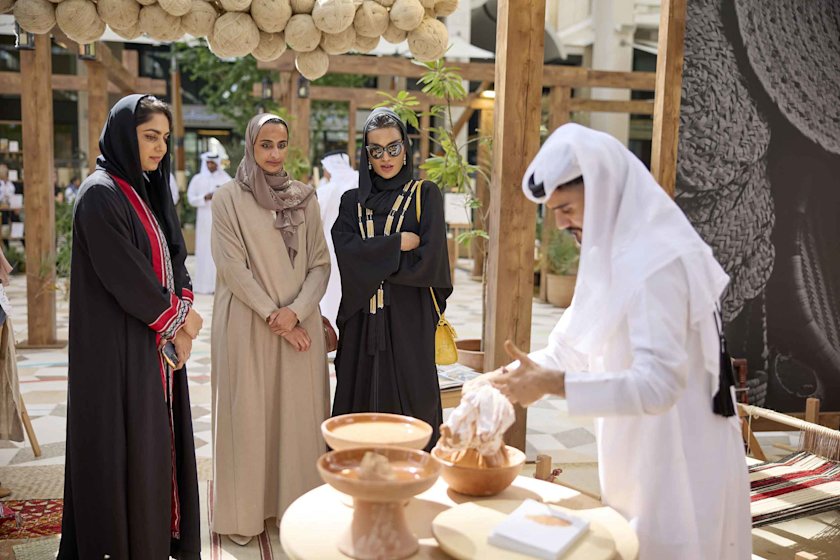
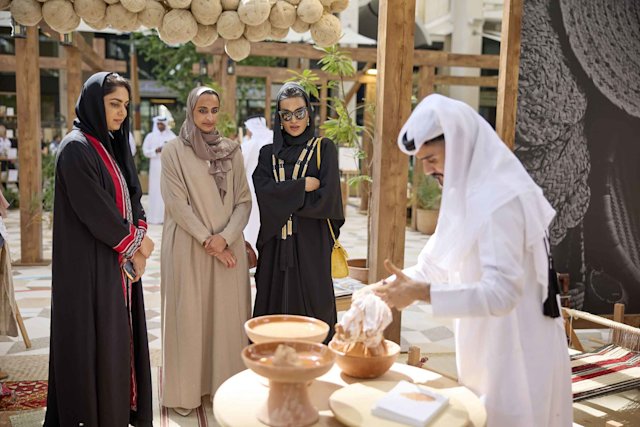
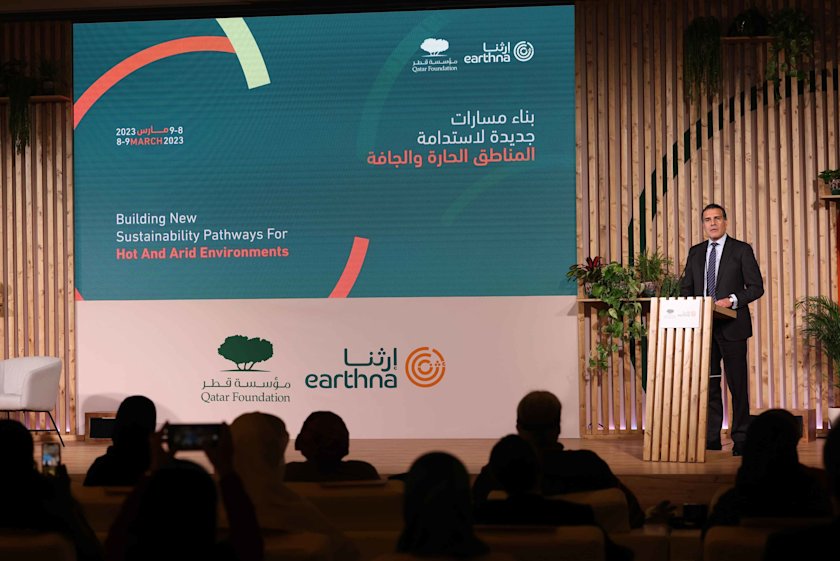
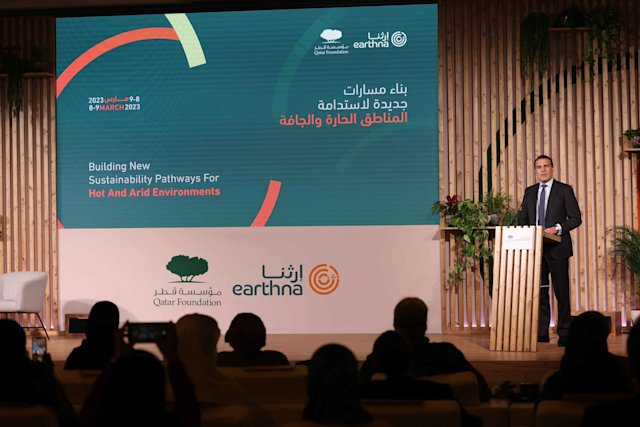
We have gained a greater understanding of traditional practices, and the impact that these can have on ecosystem management and climate adaptation today.
Indigenous Inspiration
During the Earthna Summit, discussions tackled the importance of weaving traditional agricultural methods into modern practices, and the need for global action to address developing countries’ lack of access to sustainable energy.
Experts explored how international policies are affecting attempts to move toward energy transition, while religious leaders, climate change specialists, and policymakers proposed ways in which sustainability can be more closely connected with faith and ethics.
And throughout the Summit, Qatar’s community were invited to experience the Earthna Village, a public area displaying indigenous practices for cultural, environmental, and social sustainability – from traditional weaving and shipbuilding techniques to the preservation of medicinal plants and ancient treasures.
Ahead of the Earthna Summit, QF welcomed Csaba Kőrösi, President of the 77th United Nations General Assembly, to its Education City Speaker Series dialogue platform, where he emphasized the need for nations to unite in tackling sustainability challenges; while scientist, humanitarian, and environmental activist Dr. Jane Goodall urged young people to be leaders in sustainability in her keynote speech at QF school Qatar Academy Al Wakra’s Global Innovation in Sustainability Summit.
During the Earthna Summit, discussions tackled the importance of weaving traditional agricultural methods into modern practices, and the need for global action to address developing countries’ lack of access to sustainable energy.
Experts explored how international policies are affecting attempts to move toward energy transition, while religious leaders, climate change specialists, and policymakers proposed ways in which sustainability can be more closely connected with faith and ethics.
And throughout the Summit, Qatar’s community were invited to experience the Earthna Village, a public area displaying indigenous practices for cultural, environmental, and social sustainability – from traditional weaving and shipbuilding techniques to the preservation of medicinal plants and ancient treasures.
Ahead of the Earthna Summit, QF welcomed Csaba Kőrösi, President of the 77th United Nations General Assembly, to its Education City Speaker Series dialogue platform, where he emphasized the need for nations to unite in tackling sustainability challenges; while scientist, humanitarian, and environmental activist Dr. Jane Goodall urged young people to be leaders in sustainability in her keynote speech at QF school Qatar Academy Al Wakra’s Global Innovation in Sustainability Summit.
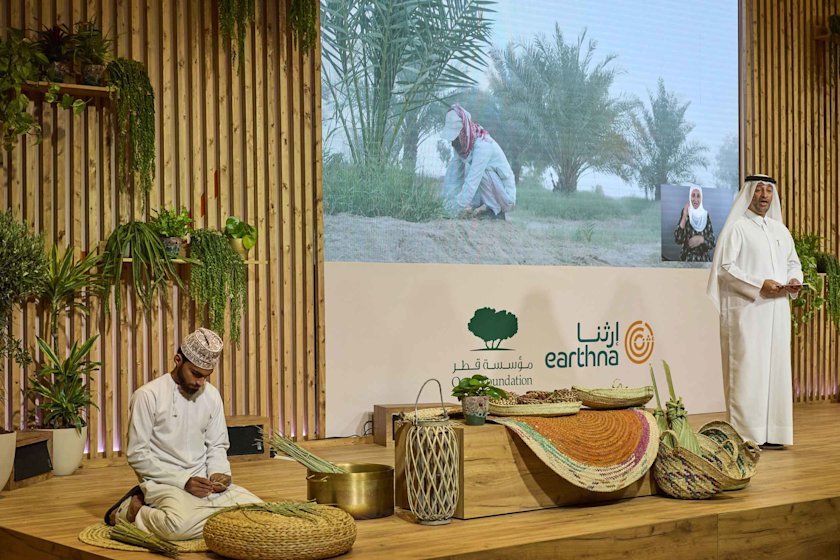
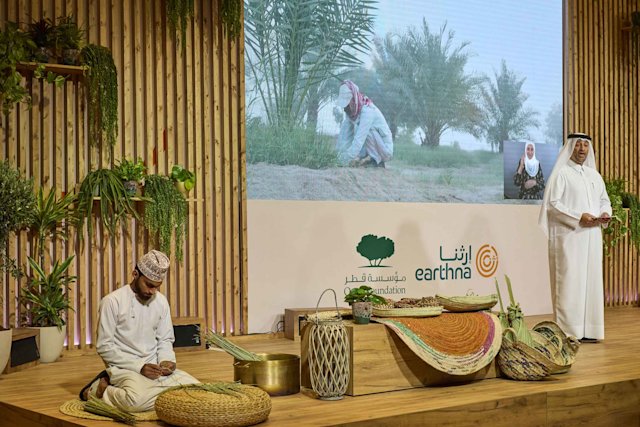
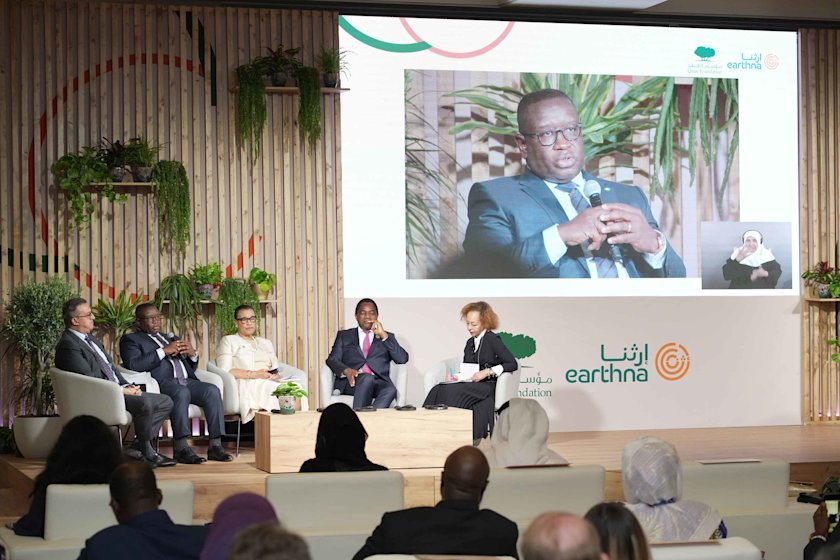
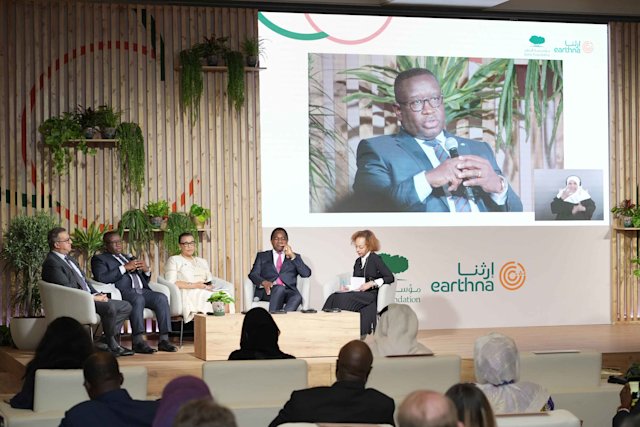
In our modern arrogance, we had perhaps disregarded what indigenous people knew for many years. This is a real moment for us to show respect for our old knowledge as well as respect for the new.
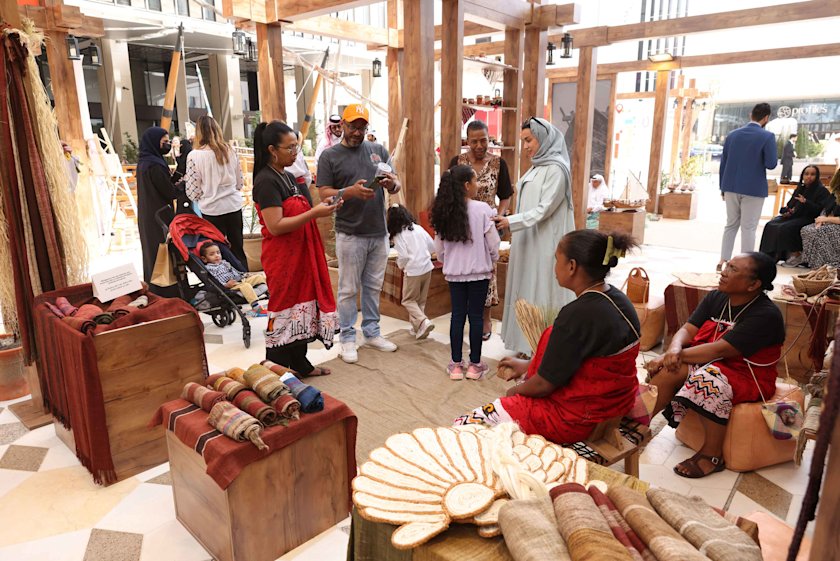
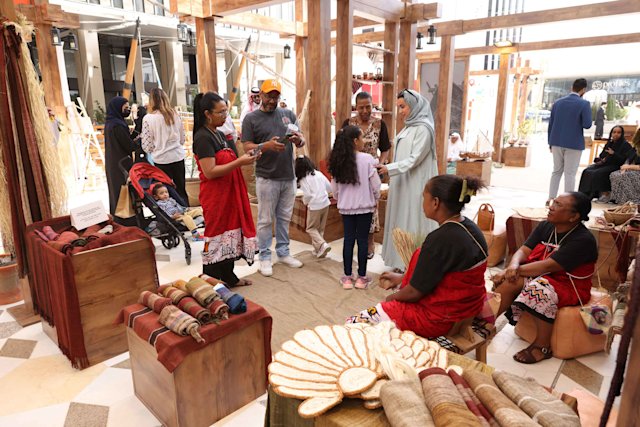
Nights of Knowledge
Among the opportunities for members of the community to embrace the spirit of the Holy Month at Education City was QF’s Ramadan Nights initiative – showcasing Qatari culture and customs and enabling people to explore Ramadan rituals in different countries.
Held at Education City’s Oxygen Park, the initiative also encouraged visitors of all ages and cultures to adopt healthy, sustainable lifestyles – and give back to their communities through volunteering.
The events featured speakers on a range of topics, including Dr. Abdulwassa Lakl from the Sheikh Abdulla Bin Zaid Mahmoud Islamic Cultural Center, one of the partners QF collaborated with for Ramadan Nights, together with Qatar Charity; Oqlah Jassim, a Syrian teacher at the cultural center; QF alumnus and Samla endurance race winner Abdulaziz Al Tamami; Abdullah Shaheen Al-Kaabi, founder of the Athlete 13 Academy for young people; and Abdur-raheem McCarthy, an American of Irish descent who converted to Islam in 1994.
And a special edition of Ramadan Nights celebrated Garangao night, with children collecting bags of nuts and sweets in one of the customs and traditions of the Holy Month.
Among the opportunities for members of the community to embrace the spirit of the Holy Month at Education City was QF’s Ramadan Nights initiative – showcasing Qatari culture and customs and enabling people to explore Ramadan rituals in different countries.
Held at Education City’s Oxygen Park, the initiative also encouraged visitors of all ages and cultures to adopt healthy, sustainable lifestyles – and give back to their communities through volunteering.
The events featured speakers on a range of topics, including Dr. Abdulwassa Lakl from the Sheikh Abdulla Bin Zaid Mahmoud Islamic Cultural Center, one of the partners QF collaborated with for Ramadan Nights, together with Qatar Charity; Oqlah Jassim, a Syrian teacher at the cultural center; QF alumnus and Samla endurance race winner Abdulaziz Al Tamami; Abdullah Shaheen Al-Kaabi, founder of the Athlete 13 Academy for young people; and Abdur-raheem McCarthy, an American of Irish descent who converted to Islam in 1994.
And a special edition of Ramadan Nights celebrated Garangao night, with children collecting bags of nuts and sweets in one of the customs and traditions of the Holy Month.
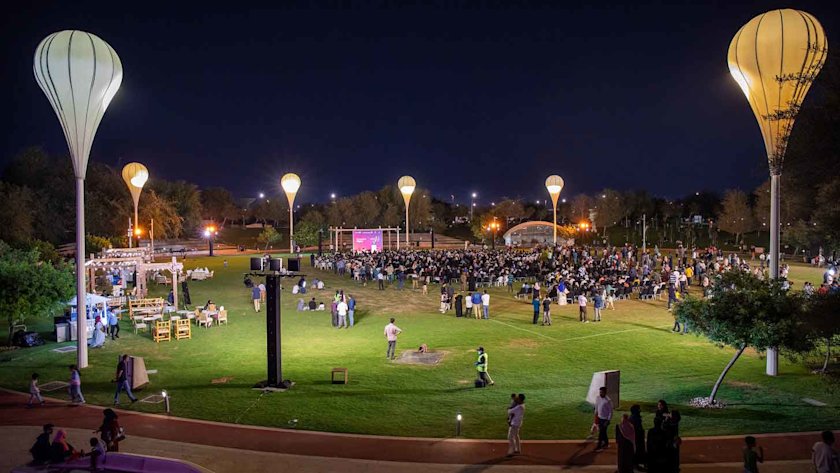
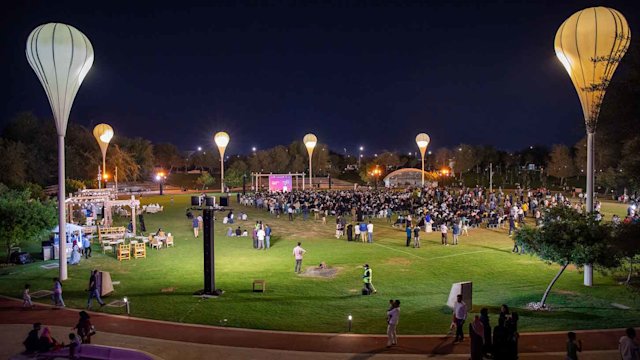
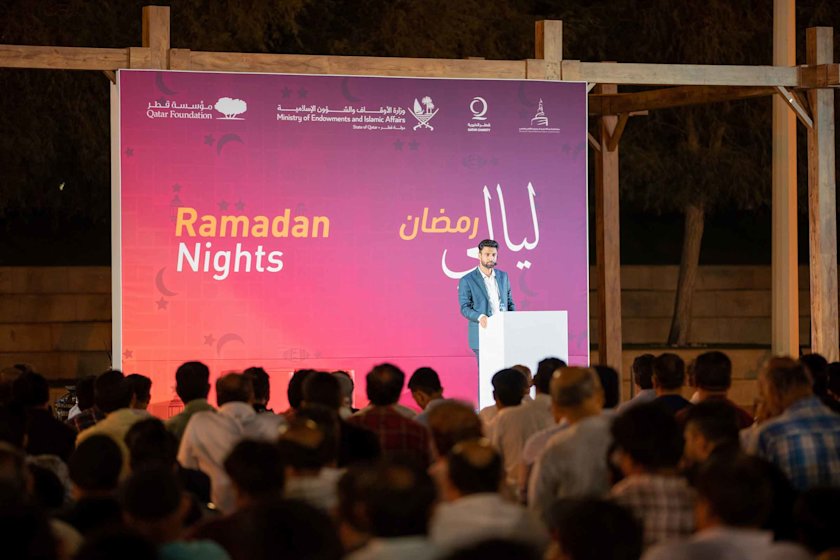
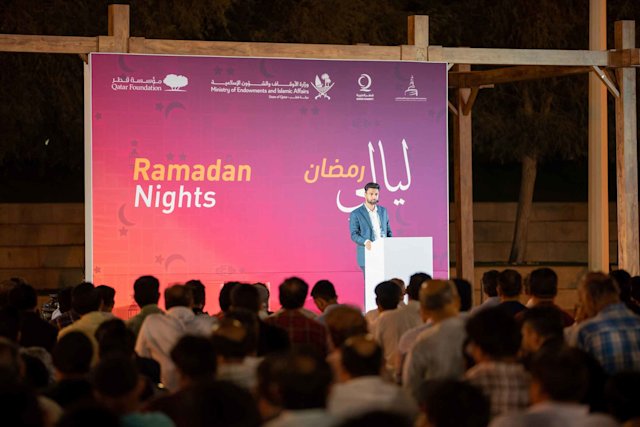
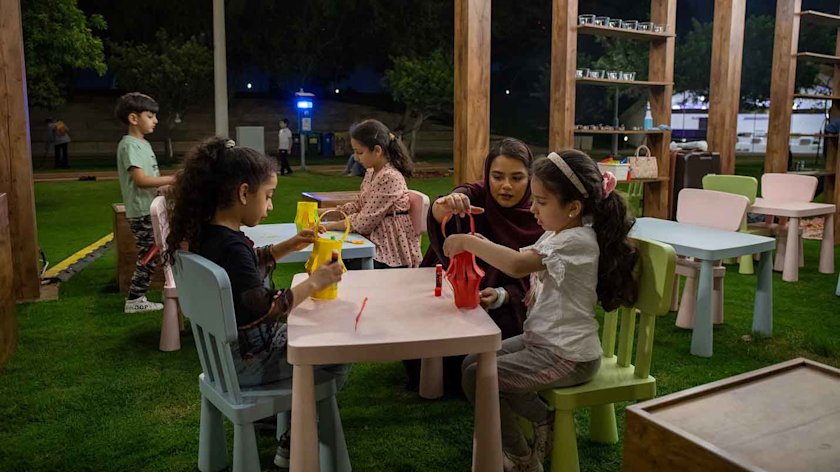
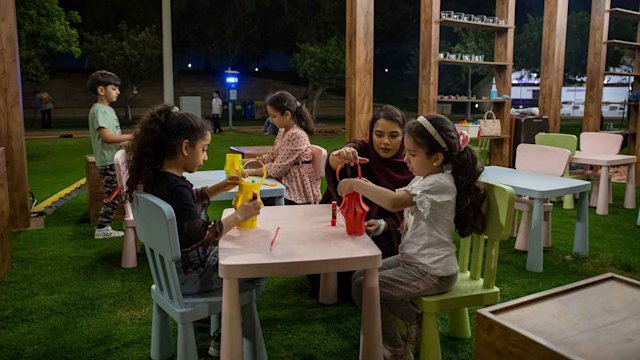
Volunteering is a noble humanitarian act that makes you feel the importance of solidarity and doing good, and recognize how simple actions can change other people’s lives for the better.
Stewards of the Environment
And during Ramadan, Education City was the setting for a community iftar with a difference – a sustainable difference.
To promote the Islamic values of moderation and ecological stewardship, Minaretein (Education City Mosque) chose to host a zero-waste iftar. Portion sizes were reduced to cut waste, with each person receiving one multi-compartment container made of eco-friendly packaging rather than multiple boxes, with water dispensers instead of plastic bottles and reusable table covers being used. Any waste was composted or recycled, with the compost generated being used within Education City.
“These might sound like small changes when looked at individually, but given we have anywhere between 1,200 and 1,500 people breaking their fast each day, over the course of 30 days these changes have a considerable impact,” said Simon Jones, Engagement and Activation Expert, QF.
“Imagine if this zero-waste iftar could be replicated across all iftar tents across the country – the waste savings would be enormous.”
The Minaretein iftar also delivered bite-size, pre-iftar sustainability sessions in six different languages that raised awareness of how to reduce waste and increase responsible consumption.
And during Ramadan, Education City was the setting for a community iftar with a difference – a sustainable difference.
To promote the Islamic values of moderation and ecological stewardship, Minaretein (Education City Mosque) chose to host a zero-waste iftar. Portion sizes were reduced to cut waste, with each person receiving one multi-compartment container made of eco-friendly packaging rather than multiple boxes, with water dispensers instead of plastic bottles and reusable table covers being used. Any waste was composted or recycled, with the compost generated being used within Education City.
“These might sound like small changes when looked at individually, but given we have anywhere between 1,200 and 1,500 people breaking their fast each day, over the course of 30 days these changes have a considerable impact,” said Simon Jones, Engagement and Activation Expert, QF.
“Imagine if this zero-waste iftar could be replicated across all iftar tents across the country – the waste savings would be enormous.”
The Minaretein iftar also delivered bite-size, pre-iftar sustainability sessions in six different languages that raised awareness of how to reduce waste and increase responsible consumption.
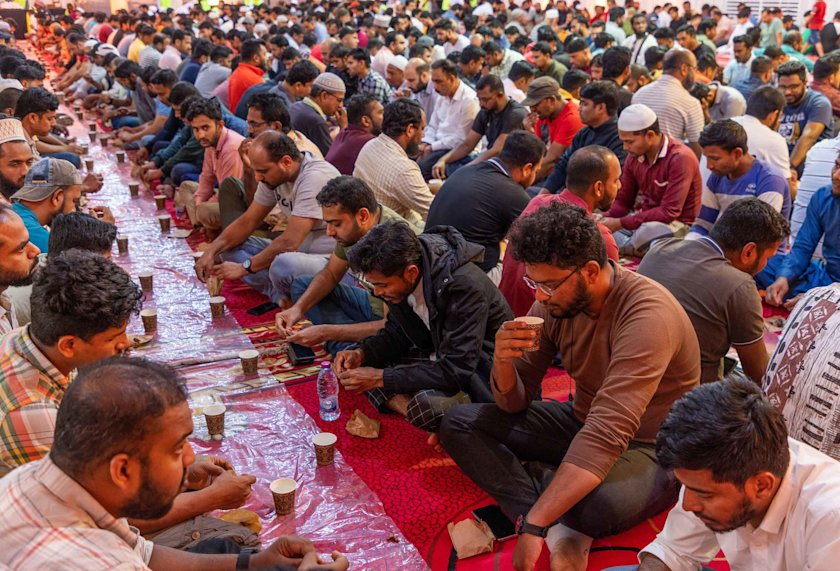
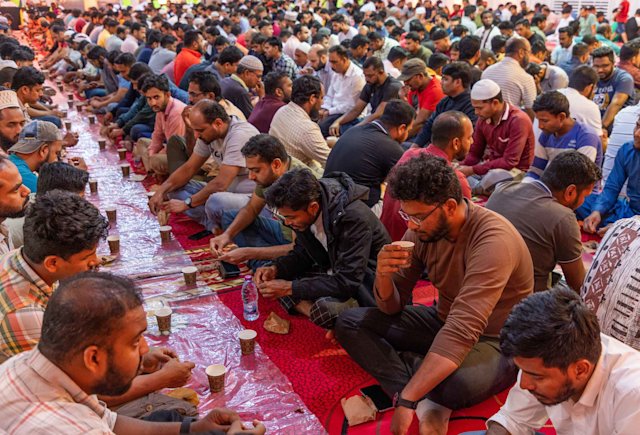
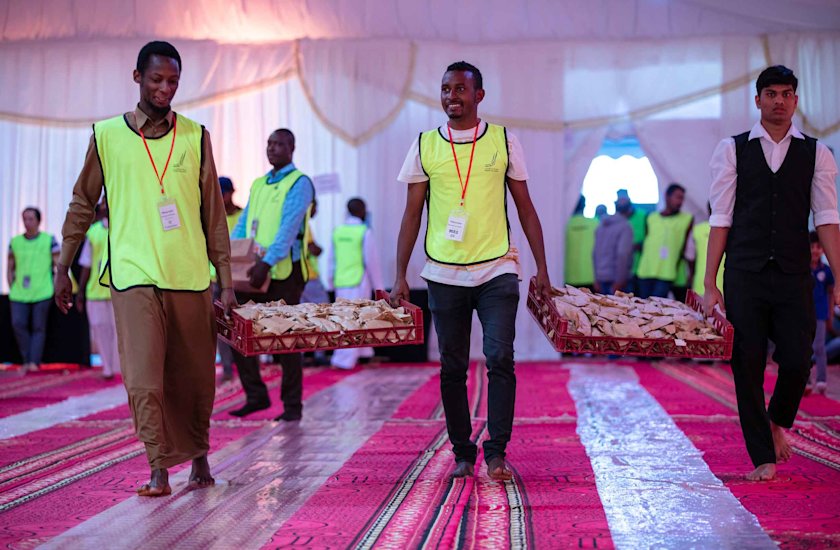
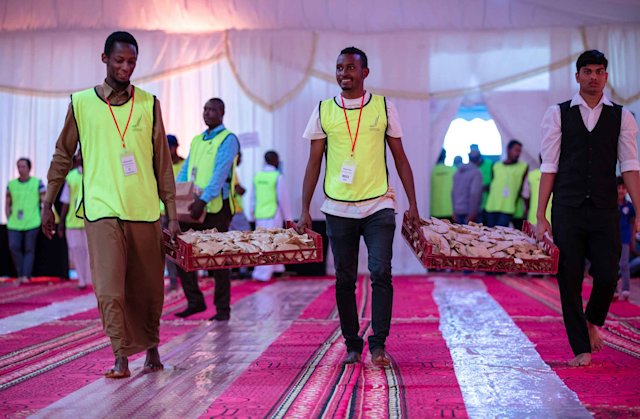
I’ve always viewed religion and environment as two separate things, but it’s initiatives like this zero-waste iftar that have helped me make that important connection.
A Green Campus
With the aim of advancing sustainability within the QF community, a QF partner university launched its EcoCampus initiative in April.
Designed to implement the United Nations Sustainable Development Goals at the Education City campus, Carnegie Mellon University in Qatar’s (CMU-Q) EcoCampus initiative involves students, staff, and faculty members, focuses on food equity, climate change, and waste management, and will – in line with the integrated nature of QF’s ecosystem – create a roadmap for other universities at Education City to benefit from.
Learning from Experts
Meanwhile, a group of CMU-Q student researchers began exploring the use of Artificial Intelligence algorithms to program aerial robots to clean and inspect solar panels, so they can operate more efficiently in Qatar’s climate.
The students have received scientific support from QF member Hamad Bin Khalifa University’s Qatar Environment and Energy Research Institute, whose Executive Director, Mark Vermeersch, said: “Our scientists and researchers take great pride in mentoring the next generation of innovators, researchers, and scientists, and we are delighted to provide CMU-Q students with the opportunity to learn from our experts and explore their own ideas.”
With the aim of advancing sustainability within the QF community, a QF partner university launched its EcoCampus initiative in April.
Designed to implement the United Nations Sustainable Development Goals at the Education City campus, Carnegie Mellon University in Qatar’s (CMU-Q) EcoCampus initiative involves students, staff, and faculty members, focuses on food equity, climate change, and waste management, and will – in line with the integrated nature of QF’s ecosystem – create a roadmap for other universities at Education City to benefit from.
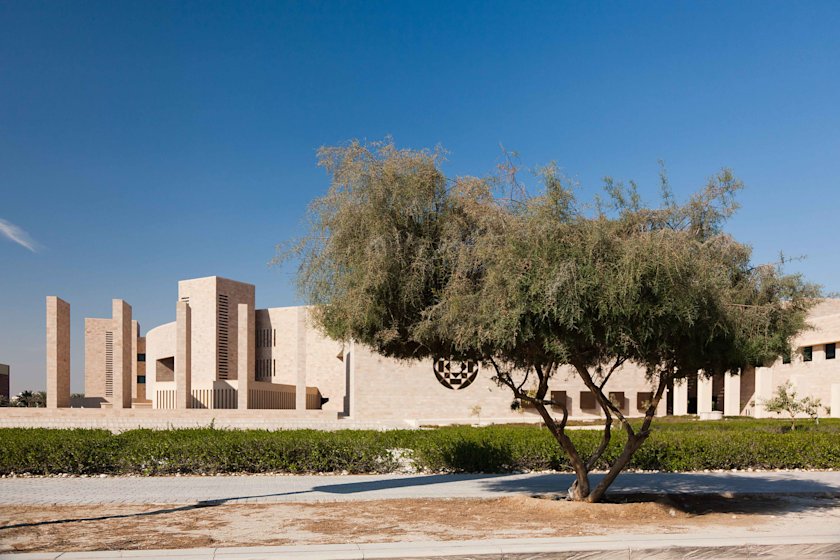
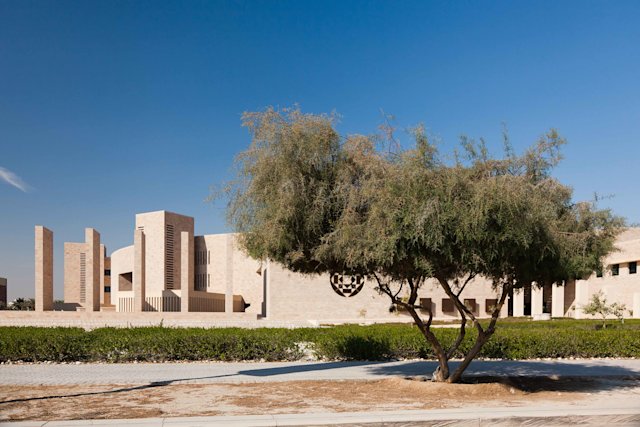
Genuine change can stem from a single individual, and I believe students need to remember the impact they can make when working together as a community.
Green for Go
Just as QF connects people of all ages with opportunities, and with each other, its Education City Tram is connecting campuses – in a sustainable way.
The eco-friendly transport system’s new Green Line was launched in July, linking Education City’s south campus, home to QF’s universities and many of its schools, public open spaces, and community facilities, with its north campus on the opposite side of Khalifa Avenue – where Sidra Medicine, Qatar Science & Technology Park, and Qatar National Convention Centre are based. It means easier and greener connectivity for students, researchers, members of the QF community, and visitors to Education City.
The arrival of the Green Line came soon after a milestone for the Education City Tram, which, in 2023, carried its millionth passenger. It played a key role during the FIFA World Cup Qatar 2022™ in ferrying an average of 9,000 fans to each match at the Education City Stadium.
The state-of-the-art Avenio trams’ onboard energy-storing system removes the need for overhead power cables and allows them to travel between stops without charging, making them a sustainable way of traveling around QF and helping to reduce Education City’s carbon footprint.
Just as QF connects people of all ages with opportunities, and with each other, its Education City Tram is connecting campuses – in a sustainable way.
The eco-friendly transport system’s new Green Line was launched in July, linking Education City’s south campus, home to QF’s universities and many of its schools, public open spaces, and community facilities, with its north campus on the opposite side of Khalifa Avenue – where Sidra Medicine, Qatar Science & Technology Park, and Qatar National Convention Centre are based. It means easier and greener connectivity for students, researchers, members of the QF community, and visitors to Education City.
The arrival of the Green Line came soon after a milestone for the Education City Tram, which, in 2023, carried its millionth passenger. It played a key role during the FIFA World Cup Qatar 2022™ in ferrying an average of 9,000 fans to each match at the Education City Stadium.
The state-of-the-art Avenio trams’ onboard energy-storing system removes the need for overhead power cables and allows them to travel between stops without charging, making them a sustainable way of traveling around QF and helping to reduce Education City’s carbon footprint.
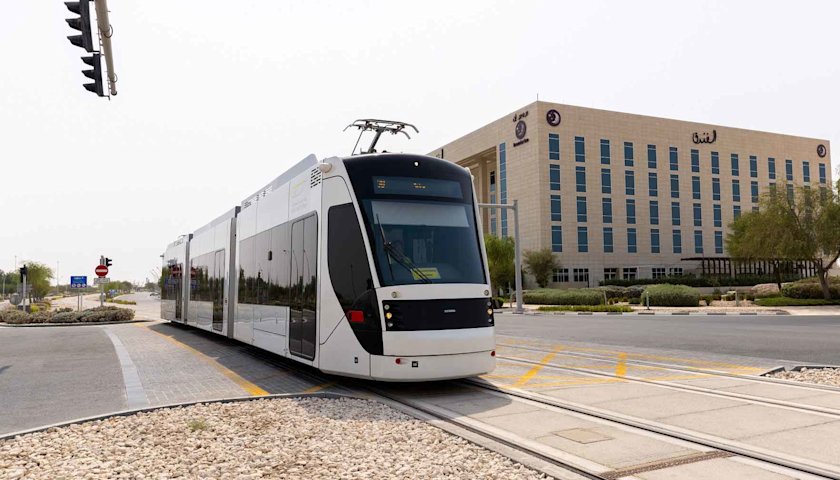
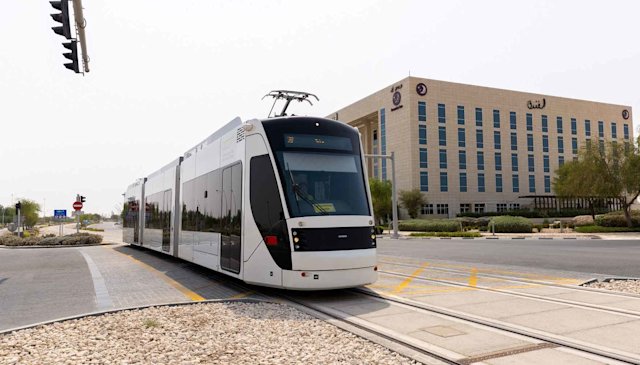
The addition of the new line sees knowledge, innovation, and creativity intertwine, supports ideas to flourish and collaborations to thrive, and is a further stride toward a sustainable transportation ecosystem.
The Education City Tram network has:
- 3 lines
- 24 stops
- 19 trams
Celebrating Green Education
The dedication to sustainability and environmental stewardship of students, teachers, and staff at a QF school led to it receiving a green accolade in September.
Qatar Leadership Academy (QLA) – part of QF’s Pre-University Education – secured the 2023 Green School Award, having been selected for its holistic approach to sustainable practices, efforts to instill eco-conscious values in its students, and commitment to nurturing a sustainable environment within the school.
The award was presented to QLA during the 7th NYC Green School Conference 2023, held alongside the 78th United Nations General Assembly in New York, attended by over 2,000 schools for 42 countries who celebrated each other’s progress in green education and shared best practices for demonstrating and promoting sustainability.
QLA’s accolade reflected its wide-ranging green initiatives within the school, including conserving energy and water to reducing waste and championing recycling among the school’s community.
The dedication to sustainability and environmental stewardship of students, teachers, and staff at a QF school led to it receiving a green accolade in September.
Qatar Leadership Academy (QLA) – part of QF’s Pre-University Education – secured the 2023 Green School Award, having been selected for its holistic approach to sustainable practices, efforts to instill eco-conscious values in its students, and commitment to nurturing a sustainable environment within the school.
The award was presented to QLA during the 7th NYC Green School Conference 2023, held alongside the 78th United Nations General Assembly in New York, attended by over 2,000 schools for 42 countries who celebrated each other’s progress in green education and shared best practices for demonstrating and promoting sustainability.
QLA’s accolade reflected its wide-ranging green initiatives within the school, including conserving energy and water to reducing waste and championing recycling among the school’s community.
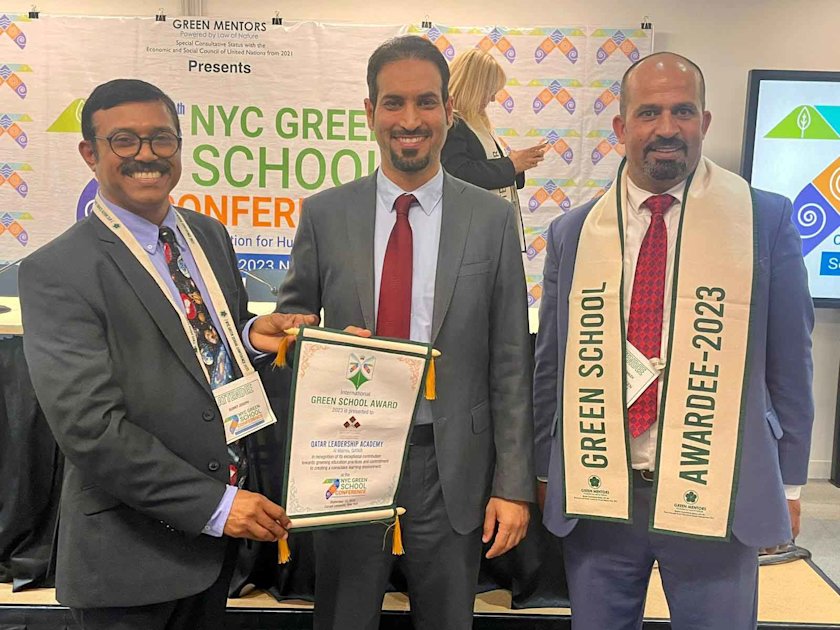
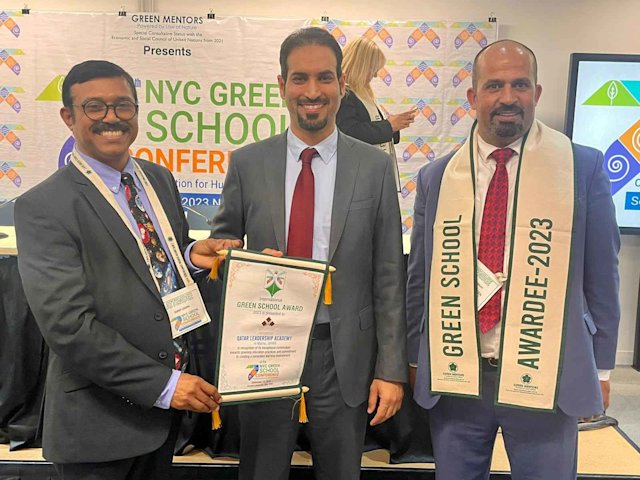
Teaching sustainability is not just a curriculum; it’s a way of life and a commitment to the future.
Outcomes for a Greener Future
Climate change innovations – including the use of Artificial Intelligence – sustainable economic transition, clean water access and food security, and green transport and finance were on the agenda at a national platform aimed at addressing Qatar’s climate challenges, co-hosted by QF’s Earthna Center for a Sustainable Future.
The third annual Qatar National Dialogue for Climate Change – organized by Earthna and the Ministry of Environment and Climate Change – produced outcomes that will help to shape environmentally-focused policies and practices in Qatar, and that informed the country’s participation in the UN’s COP28 conference in December 2023.
“At Earthna, we aim to be a convener of climate change thinking and action in Qatar and other hot and arid countries,” said Dr. Gonzalo Castro de la Mata, Executive Director of Earthna. “We do this by building and facilitating collaborative platforms that unite a diverse community of experts.
“Through thoughtful discussions, collaboration on initiatives, and sharing knowledge, the Qatar National Dialogue on Climate Change aims to inspire positive action and drive tangible outcomes for climate change mitigation and adaptation in Qatar.”
Climate change innovations – including the use of Artificial Intelligence – sustainable economic transition, clean water access and food security, and green transport and finance were on the agenda at a national platform aimed at addressing Qatar’s climate challenges, co-hosted by QF’s Earthna Center for a Sustainable Future.
The third annual Qatar National Dialogue for Climate Change – organized by Earthna and the Ministry of Environment and Climate Change – produced outcomes that will help to shape environmentally-focused policies and practices in Qatar, and that informed the country’s participation in the UN’s COP28 conference in December 2023.
“At Earthna, we aim to be a convener of climate change thinking and action in Qatar and other hot and arid countries,” said Dr. Gonzalo Castro de la Mata, Executive Director of Earthna. “We do this by building and facilitating collaborative platforms that unite a diverse community of experts.
“Through thoughtful discussions, collaboration on initiatives, and sharing knowledge, the Qatar National Dialogue on Climate Change aims to inspire positive action and drive tangible outcomes for climate change mitigation and adaptation in Qatar.”
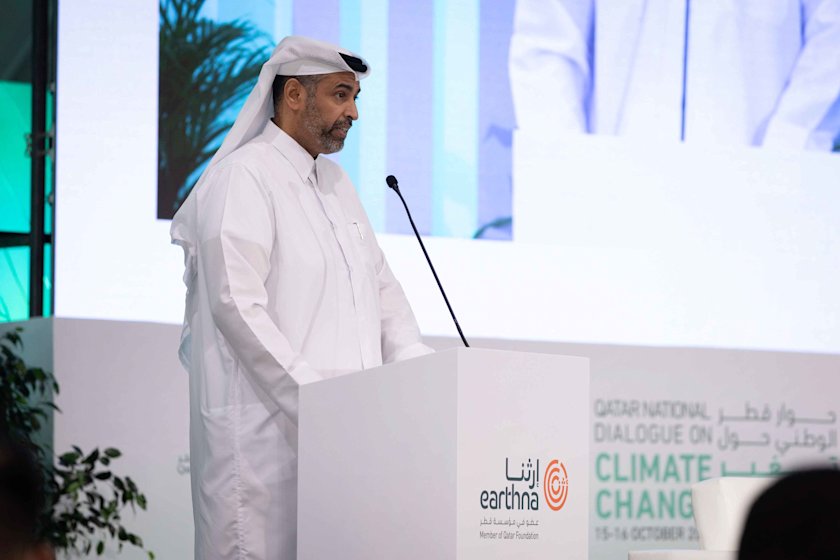
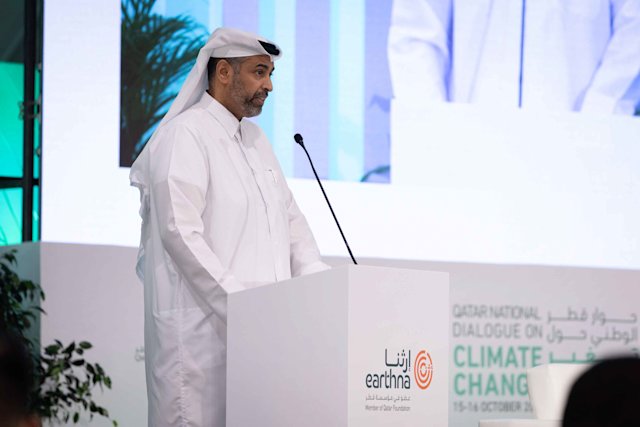
The international community has a responsibility to work towards mitigating the effects of climate change and adapt to it – Qatar attaches great importance to addressing climate change and desertification.
Solutions for the World
Once again, Qatar welcomed the world in October, as the first top-tier international cultural exhibition in Qatar and the region – Expo 2023 Doha – began.
And reflecting the place that sustainability holds at the core of its mission – from innovation and policy advocacy to raising public awareness and empowering youth to be catalysts for change – QF was present to showcase solutions for a sustainable future, created and driven within its ecosystem.
Across the exhibition’s six months, QF’s space at the Expo 2023 Doha site in Al Bidda Park, powered by HBKU, has enabled visitors to engage with sustainability under the theme of ‘Local Innovations for Global Resilience’ – including examples of sustainable technology, youth-led projects, and opportunities for visitors to experience sustainable practices for themselves.
Expo 2023 Doha was also the setting for the launch of the fourth season of QF’s 3D edutainment TV series Siraj, while HBKU’s Qur’anic Botanic Garden has hosted its own pavilion including exhibits of plants mentioned in the Holy Qur’an and Sunnah and their historical and religious significance, along with displays of its conservation work and its third annual conference.
Once again, Qatar welcomed the world in October, as the first top-tier international cultural exhibition in Qatar and the region – Expo 2023 Doha – began.
And reflecting the place that sustainability holds at the core of its mission – from innovation and policy advocacy to raising public awareness and empowering youth to be catalysts for change – QF was present to showcase solutions for a sustainable future, created and driven within its ecosystem.
Across the exhibition’s six months, QF’s space at the Expo 2023 Doha site in Al Bidda Park, powered by HBKU, has enabled visitors to engage with sustainability under the theme of ‘Local Innovations for Global Resilience’ – including examples of sustainable technology, youth-led projects, and opportunities for visitors to experience sustainable practices for themselves.
Expo 2023 Doha was also the setting for the launch of the fourth season of QF’s 3D edutainment TV series Siraj, while HBKU’s Qur’anic Botanic Garden has hosted its own pavilion including exhibits of plants mentioned in the Holy Qur’an and Sunnah and their historical and religious significance, along with displays of its conservation work and its third annual conference.
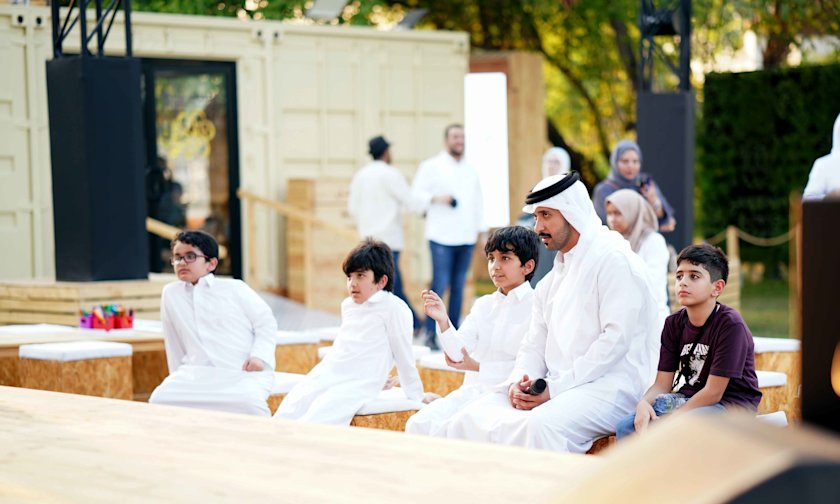
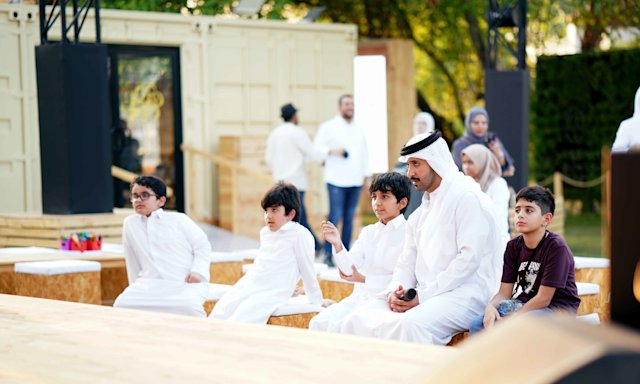
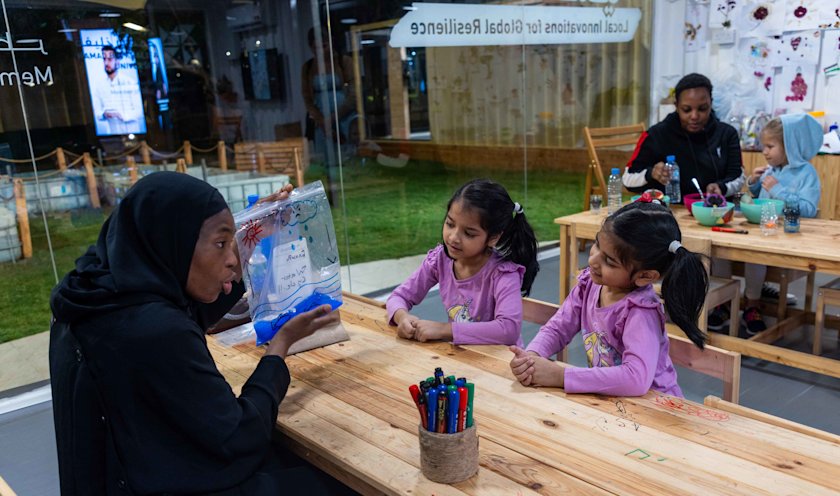
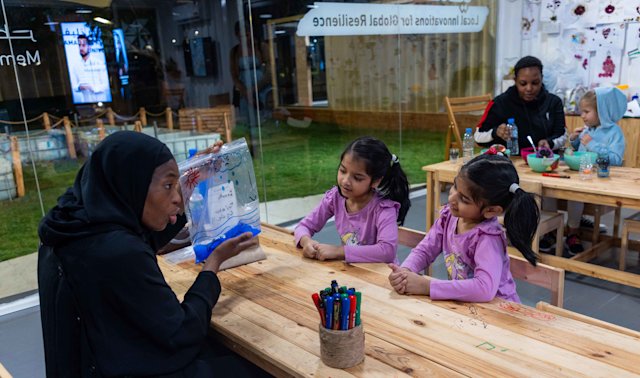
Expo 2023 Doha is an incredible opportunity for us to forge new partnerships with peers in the field of environmental awareness and sustainability, while introducing ourselves to an international audience.
The QF space powered by HBKU at Expo 2023 Doha hosted:
- A Horticultural Zone featuring a dynamic greenhouse, Artificial Intelligence technology, and a vertical garden.
- A Waste to Resources Zone showcasing QF’s work on innovation solutions to waste degradation, and teaching visitors about how climate change affects Qatar’s soil and land.
- A Theater Zone with interactive talks and workshops by QF experts.
- A Workshops Zone offering interactive sessions for children on topics including planting, recycling flowers, and water conservation.
- A Community Farm Zone where visitors discovered the art of gardening in the desert.
- A Student Exhibition of sustainability-focused projects.
Raising a Green Bar
A week-long effort to promote and raise awareness of sustainability – organized by QF’s Earthna Center for a Sustainable Future and the Ministry of Environment and Climate Change – broke records for community engagement as it reached its eighth edition.
Qatar Sustainability Week empowered over 200,000 people across Qatar to play their part in building a movement for positive, sustainable change – from workshops on water security, electric vehicles, and lowering carbon emissions, to beach and desert clean-ups, tree and mangrove planting, and initiatives focused on recycling, upcycling, and reusing.
One of the activities saw QF host a composting workshop for students at Education City, teaching them how to recycle organic waste and the value of adopting sustainable practices in their daily lives, which also provided them with composting binds for their schools and universities.
And Awsaj Academy and Qatar Academy Al Khor were the latest QF schools to be awarded the Eco-Schools Green Flag – recognizing the dedication of their students to protecting and preserving the environment – while GU-Q was the setting for a conference exploring how the drive for water security can support regional cooperation and stability.
A week-long effort to promote and raise awareness of sustainability – organized by QF’s Earthna Center for a Sustainable Future and the Ministry of Environment and Climate Change – broke records for community engagement as it reached its eighth edition.
Qatar Sustainability Week empowered over 200,000 people across Qatar to play their part in building a movement for positive, sustainable change – from workshops on water security, electric vehicles, and lowering carbon emissions, to beach and desert clean-ups, tree and mangrove planting, and initiatives focused on recycling, upcycling, and reusing.
One of the activities saw QF host a composting workshop for students at Education City, teaching them how to recycle organic waste and the value of adopting sustainable practices in their daily lives, which also provided them with composting binds for their schools and universities.
And Awsaj Academy and Qatar Academy Al Khor were the latest QF schools to be awarded the Eco-Schools Green Flag – recognizing the dedication of their students to protecting and preserving the environment – while GU-Q was the setting for a conference exploring how the drive for water security can support regional cooperation and stability.
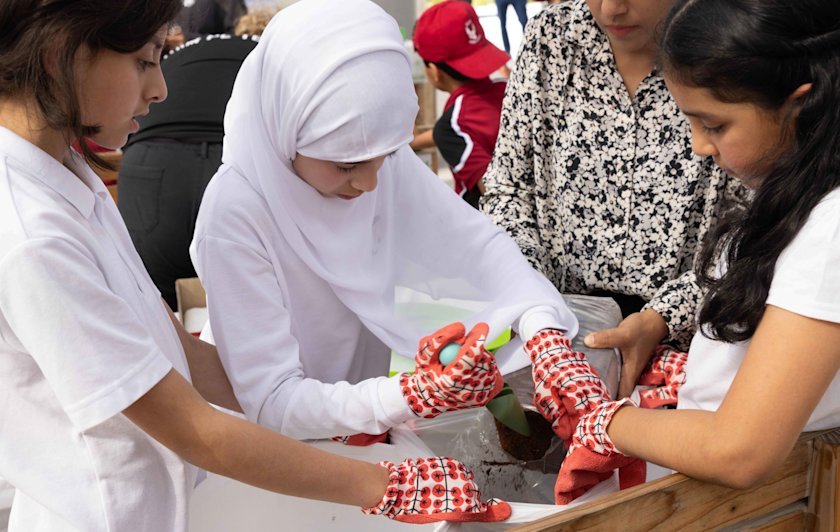
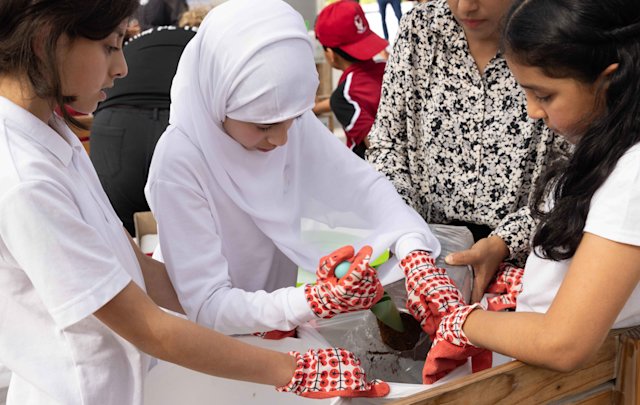
We are working to nurture a more environmentally friendly campus by empowering eco-advocates, ensuring the sustainability of our future.
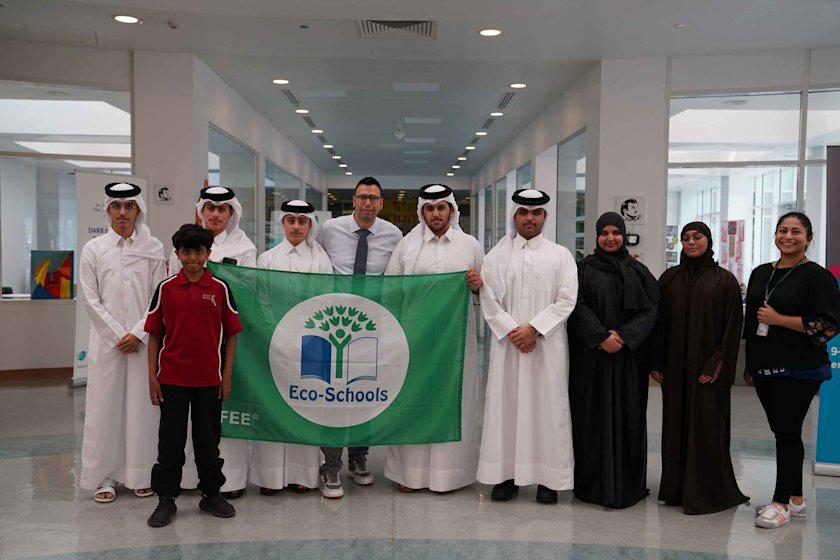
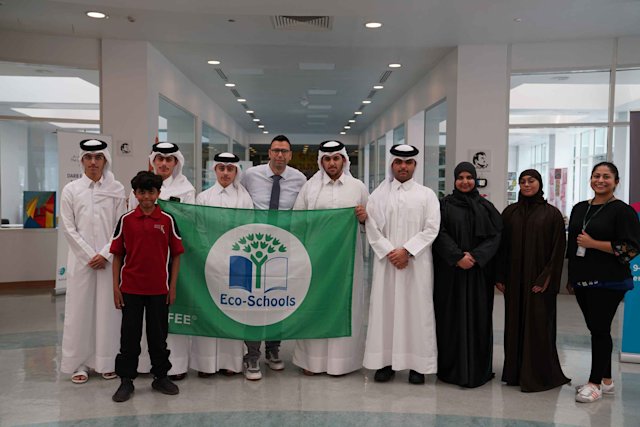
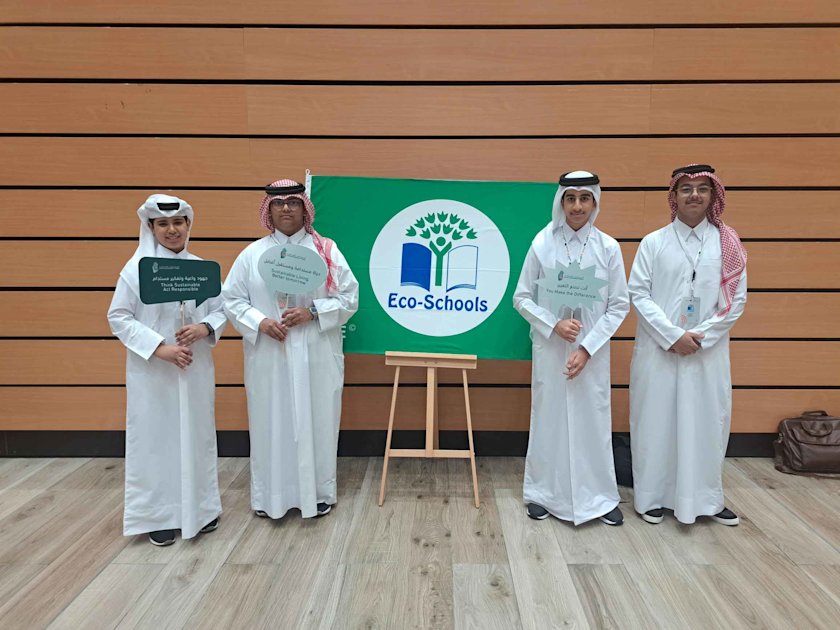
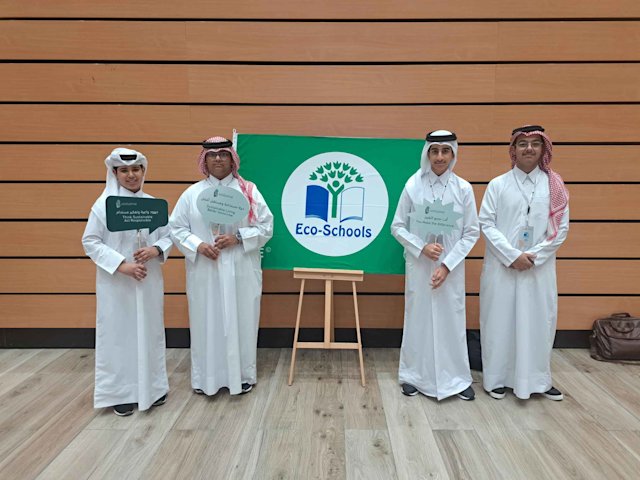
Accelerating Entrepreneurship
Staying on the innovation scene, a technology-accelerating program run by QF’s Qatar Science & Technology Park (QSTP) enabled an Education City inventor to drive forward his idea for making life safer for cyclists.
Mentorship and training from QSTP’s XLR8 program has been crucial to moving RESPO2 – which is worn over cycling helmets and has a visor and air filtration system to protect people from air pollution – closer to the point of commercialization. The innovation is the brainchild of Dr. Geoffrey Hicks, Director of Health, Safety, Security and Environment at HBKU’s Qatar Environment and Energy Research Institute.
Also in December, QF partner university HEC Paris in Qatar unveiled the Emerging Leaders Track of its world-renowned Executive MBA program. Catering to young, high-potential professionals from Qatar and the region, it will welcome its first cohort in the fall of 2024.
“Embracing inclusive leadership, encompassing age and gender diversity, our program is nurturing a new wave of adaptable leaders and entrepreneurs ready to excel in the dynamic regional and global business landscape,” said Dr. Shaheena Janjuha-Jivraj, Academic Director of the Emerging Leaders Track.
Staying on the innovation scene, a technology-accelerating program run by QF’s Qatar Science & Technology Park (QSTP) enabled an Education City inventor to drive forward his idea for making life safer for cyclists.
Mentorship and training from QSTP’s XLR8 program has been crucial to moving RESPO2 – which is worn over cycling helmets and has a visor and air filtration system to protect people from air pollution – closer to the point of commercialization. The innovation is the brainchild of Dr. Geoffrey Hicks, Director of Health, Safety, Security and Environment at HBKU’s Qatar Environment and Energy Research Institute.
Also in December, QF partner university HEC Paris in Qatar unveiled the Emerging Leaders Track of its world-renowned Executive MBA program. Catering to young, high-potential professionals from Qatar and the region, it will welcome its first cohort in the fall of 2024.
“Embracing inclusive leadership, encompassing age and gender diversity, our program is nurturing a new wave of adaptable leaders and entrepreneurs ready to excel in the dynamic regional and global business landscape,” said Dr. Shaheena Janjuha-Jivraj, Academic Director of the Emerging Leaders Track.
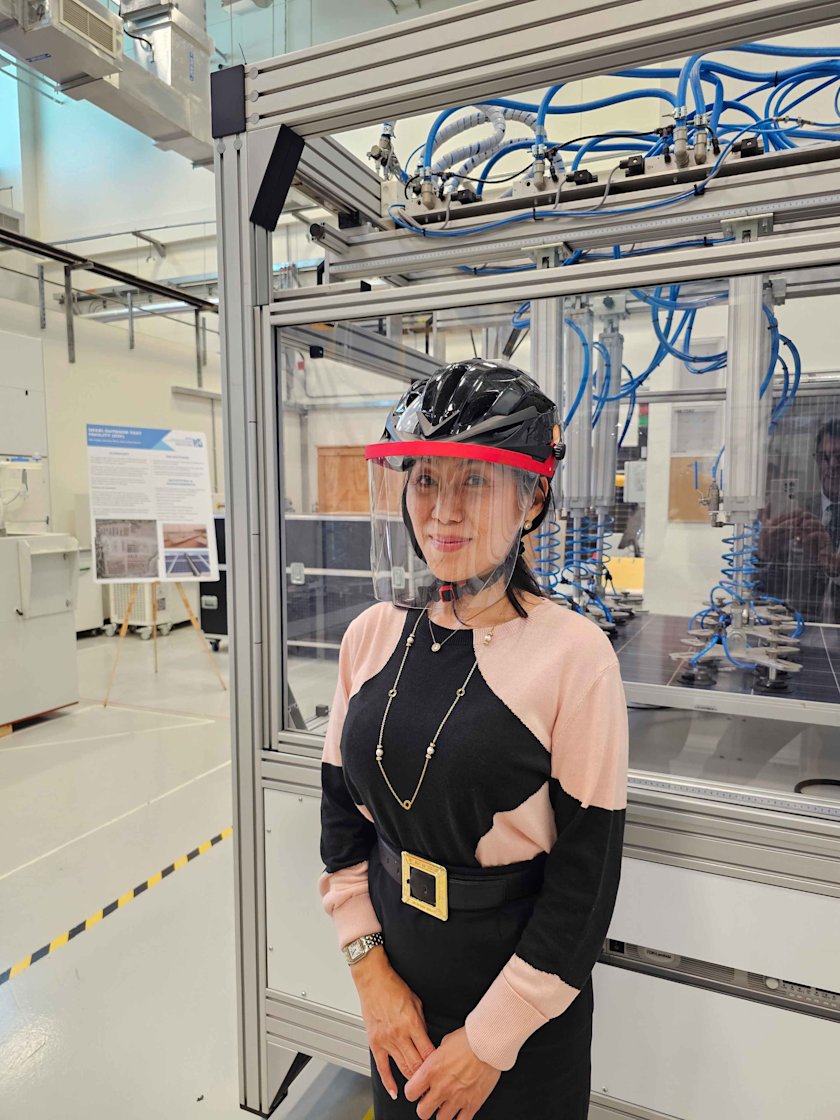
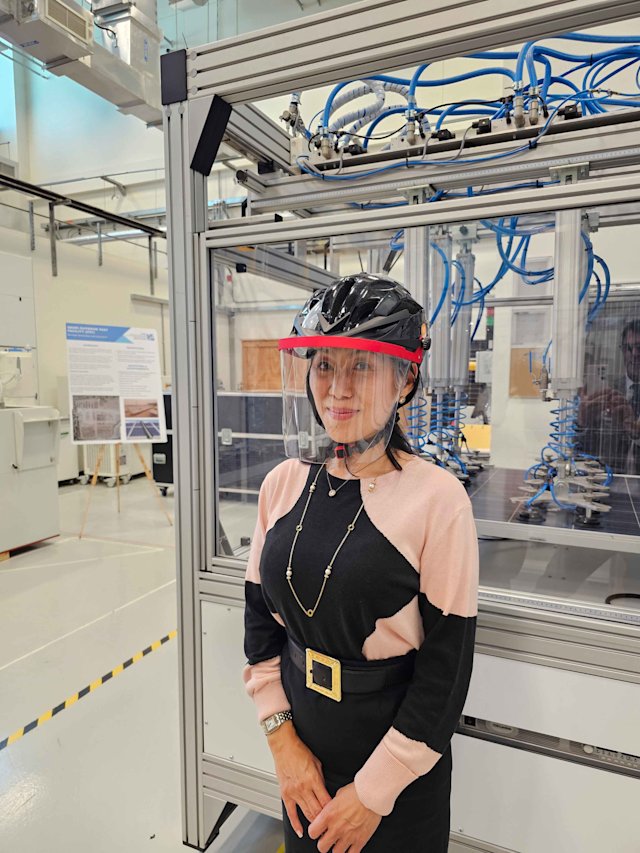
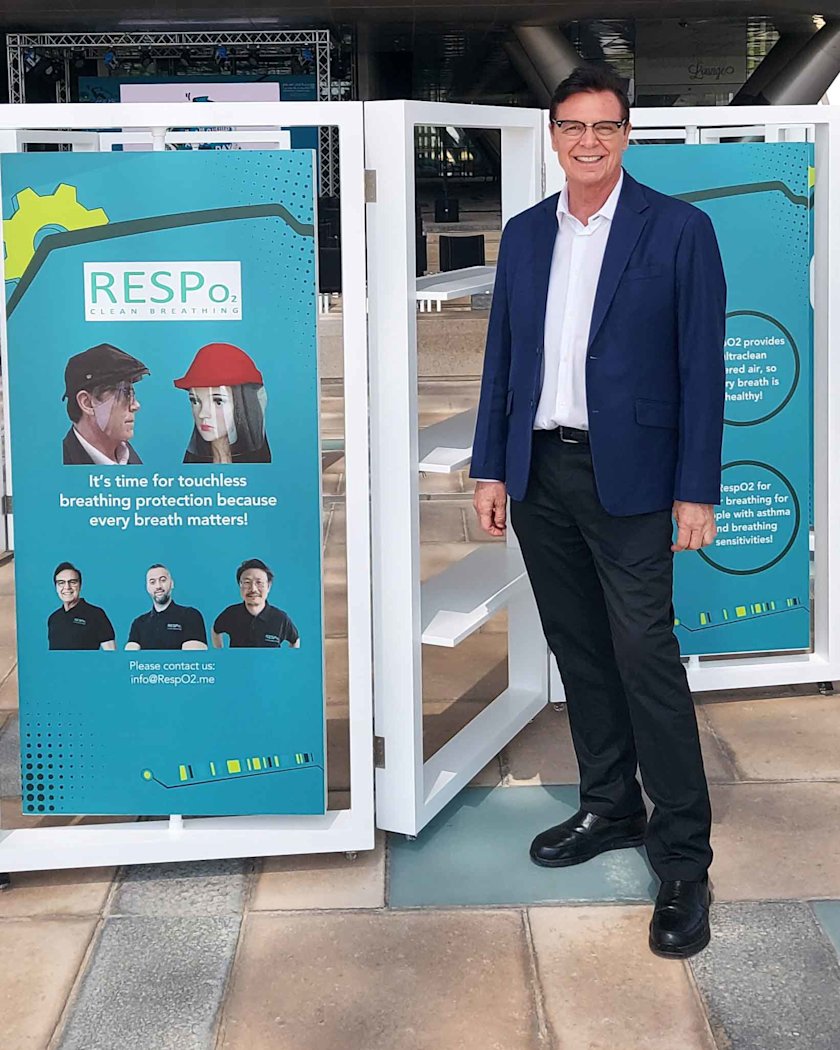
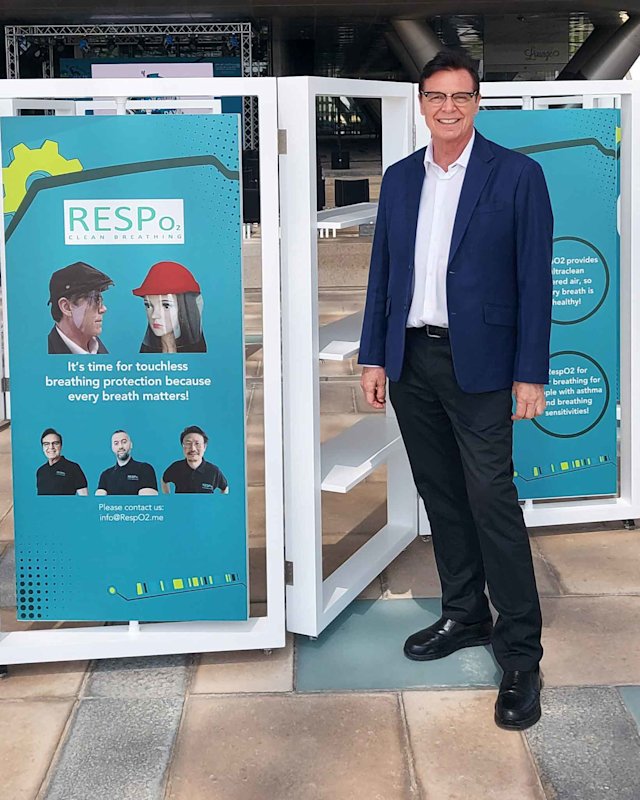
If you have a tremendous gift to bring to the world, through your innovation, you will already feel rewarded. You have to think of the wider good.
Legacy, Interconnectivity, Creativity
Elsewhere within QF’s partner universities, Northwestern University in Qatar examined the social, cultural, and economic legacy of the FIFA World Cup Qatar 2022™, 12 months after the final whistle blew on the greatest tournament of all time.
Past and present Weill Cornell Medicine-Qatar (WCM-Q) students also marked a milestone as they faced off in a debate on TikTok and mental health on the 15th anniversary of the university’s Debate Club; while WCM-Q’s Innovations and Technologies for Precision Health student club hosted its inaugural event, welcoming experts to demonstrate how collaboration serves innovation.
The interconnectivity between energy, culture, and society in the pursuit of sustainability was among the themes at GU-Q’s Global Energy Cultures public forum, held in collaboration with Msheireb Museums, which saw energy experts and scholars swap perspectives with artists and filmmakers.
And Virginia Commonwealth University School of the Arts in Qatar launched its School Visits Program, where creative experts from the university inspired school students to immerse themselves in art and design, as well as opening doors for young people to enter the world of vinyl artistry.
Elsewhere within QF’s partner universities, Northwestern University in Qatar examined the social, cultural, and economic legacy of the FIFA World Cup Qatar 2022™, 12 months after the final whistle blew on the greatest tournament of all time.
Past and present Weill Cornell Medicine-Qatar (WCM-Q) students also marked a milestone as they faced off in a debate on TikTok and mental health on the 15th anniversary of the university’s Debate Club; while WCM-Q’s Innovations and Technologies for Precision Health student club hosted its inaugural event, welcoming experts to demonstrate how collaboration serves innovation.
The interconnectivity between energy, culture, and society in the pursuit of sustainability was among the themes at GU-Q’s Global Energy Cultures public forum, held in collaboration with Msheireb Museums, which saw energy experts and scholars swap perspectives with artists and filmmakers.
And Virginia Commonwealth University School of the Arts in Qatar launched its School Visits Program, where creative experts from the university inspired school students to immerse themselves in art and design, as well as opening doors for young people to enter the world of vinyl artistry.


Nothing could compare to the lessons I learned in my work during the World Cup, that hard work and dedication could take you so far.